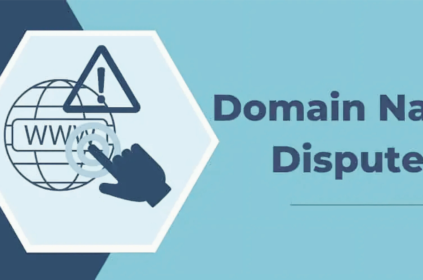Could a domain name registry face cybersquatting accusations on its own premium domains? We’ll explore recent lawsuits. We also discuss how these cases might change how registries manage and profit from valuable web addresses.
The digital landscape constantly evolves. Naturally, domain name management becomes more complex. Premium domain names are typically short, generic, or highly brandable. They hold significant value. For domain name registries, these are key assets. However, a recent lawsuit raises a critical question: Can a registry owning a premium domain name be found guilty of cybersquatting? The outcomes of such cases could fundamentally impact how registries manage and monetize their premium domain inventories.
Registry Ownership and Cybersquatting Claims
Domain name registries generally manage top-level domains (TLDs). They also authorize registrars to sell domain names within those TLDs. Premium domains within these TLDs are often identified and priced higher due to their high estimated worth. Registries commonly register these premium domains themselves. They don’t simply mark them as premium and leave them unregistered. This practice allows the registry to control the initial sale. It also lets them potentially benefit from the domain’s increase in value.
Nonetheless, this practice opens a potential legal path for cybersquatting claims. Cybersquatting, in essence, involves registering, using, or selling a domain name in bad faith. The goal is to profit from someone else’s trademark goodwill. A critical question then arises: Can a domain registry act in bad faith? This could happen if it registers and offers for sale a premium domain name that matches or closely resembles an existing trademark.
Recent Lawsuits and Their Implications
A recent case highlights this very issue. X-Law Group, PC, a California law firm, filed a cybersquatting lawsuit against the single-letter domain x.law. The domain’s Whois record shows Registry Services, LLC, as the registrant. Registry Services is a GoDaddy subsidiary managing its registry operations. Notably, Registry Services acquired the .law TLD when it bought MMX in 2021. It appears MMX originally registered x.law in 2020.
The lawsuit alleges that only law firms and associated entities can register .law domains. Furthermore, X-Law claims that the anonymous owner of the domain (acting through GoDaddy as an intermediary) has repeatedly contacted the plaintiff since 2023. They allegedly tried to sell the domain for prices ranging from $19,999 to $39,999.
This case raises several crucial points:
- Registry as Registrant: The registry itself registered the premium domain. This fact is central to the lawsuit.
- Restricted TLD: The .law TLD has specific registration requirements. The plaintiff argues the current registrant might not meet these.
- Alleged Bad Faith Intent: The repeated attempts to sell the domain to a potentially relevant trademark holder could suggest bad faith intent. This might show a desire to profit from the trademark.
Could a Court Find Cybersquatting?
Whether the court finds Registry Services liable for cybersquatting on x.law remains to be seen. To prove cybersquatting under the Anticybersquatting Consumer Protection Act (ACPA) in the United States, a plaintiff typically needs to show two things:
- The domain name is identical or confusingly similar to a trademark the plaintiff owns.
- The defendant has a bad faith intent to profit from that trademark.
In the x.law case, the plaintiff would need to convince the court that Registry Services (or the anonymous entity working through them) registered and kept the domain primarily to sell it to a law firm at a high price. This argument would rest on the domain’s natural link to the “.law” extension and potentially the “X-Law” trademark.e inherent connection to the “.law” extension and potentially the “X-Law” trademark.
Other Relevant Cases and Outcomes
While the x.law case directly targets a registry-owned domain, other cybersquatting lawsuits involving premium domains offer some context:
- Alo Yoga vs. alo.com: In a recent in rem lawsuit, yoga apparel company Alo Yoga gained control of the valuable domain alo.com. The company argued the domain displayed ads that competed with their business. The domain owner did not respond to the lawsuit, leading to a default judgment in Alo Yoga’s favor. This shows that even valuable, generic domains can face cybersquatting claims if used in bad faith to exploit a trademark.
- Nissan vs. Uzi Nissan (nissan.com): This older, yet prominent case highlights the complexities. Uzi Nissan, whose legal name was Nissan, registered nissan.com before the car manufacturer became prominent online. The court ultimately ruled in favor of the individual. This emphasized his legitimate right to use his own name as a domain. This underscores that not all registrations of trademark-similar domains constitute cybersquatting. This is especially true if the registrant has a legitimate, non-infringing use.
- Madonna vs. madonna.com: Pop icon Madonna won a case against a cybersquatter. The cybersquatter registered madonna.com and used it for adult content, damaging her brand image. This illustrates that using a trademark-similar domain for purposes that harm the trademark owner’s reputation can be strong evidence of bad faith.
Implications for Domain Registries
The outcome of the x.law lawsuit could have significant ramifications for how domain registries manage their premium domain portfolios. If a court finds that a registry’s practice of registering and offering for sale premium domains that incorporate trademarks constitutes cybersquatting under certain circumstances, registries might need to:
- Implement stricter due diligence processes: Before registering premium domains, registries may need to conduct more thorough trademark clearance searches to identify potential conflicts.
- Re-evaluate pricing strategies: Aggressively high pricing for trademark-related premium domains could be seen as evidence of bad faith intent to profit from the trademark.
- Consider alternative management models: Registries might explore options like licensing premium domains or establishing clearer policies regarding trademark conflicts.
- Face potential legal challenges: Trademark holders might become more inclined to pursue legal action against registries holding premium domains that infringe on their marks.
Conclusion: The intersection of premium domain management and cybersquatting law is a complex and evolving area. The x.law lawsuit serves as a critical reminder that even domain name registries are not immune to cybersquatting allegations when they directly hold and market premium domains. The legal landscape surrounding domain names and trademark protection is intricate, and the outcomes of these cases will likely shape the future practices of domain registries worldwide. As businesses increasingly rely on their online presence and domain names as crucial brand identifiers, the careful management and potential legal risks associated with premium domains will undoubtedly remain a significant point of consideration for registries and trademark owners alike.
ACPA cybersquatting domain registry Premium Domain
Last modified: July 24, 2025






Great contribution